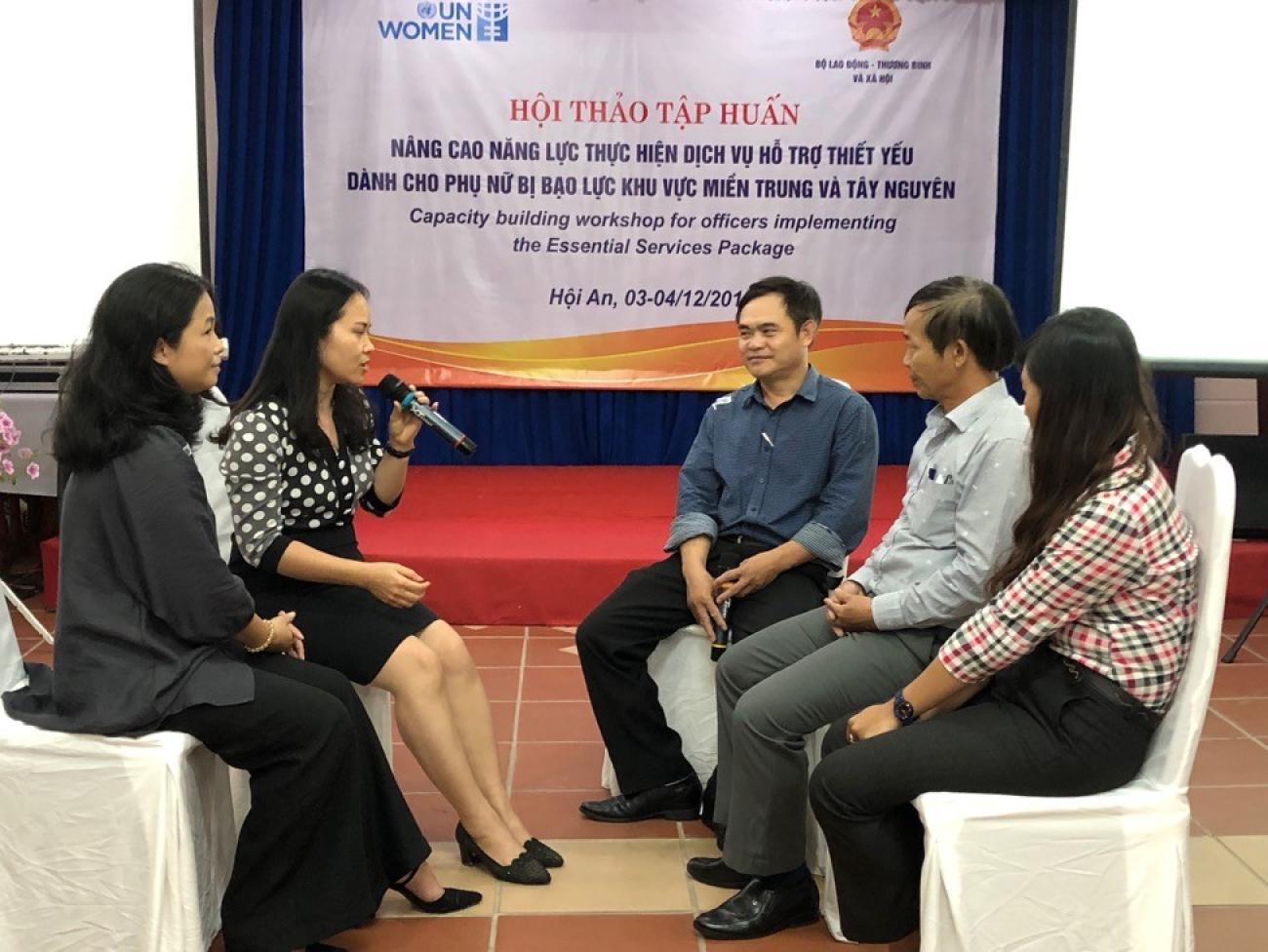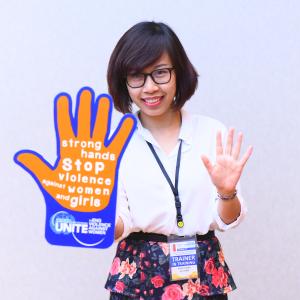“I didn’t dare to look people into the eyes, I felt so ashamed. The doctor asked me if I had done anything wrong to get beaten that badly by my husband.” Linh, a 33-year-old female victim of domestic violence in Ben Tre province said.
“But I was really scared to report my husband at the local authority because he has a wide local network and I didn’t want people all around to know about it” – shared Hoa, another victim.
For these women, the physical pain from violence can be surpassed by the pain from social stigma and gender stereotypes. Will telling the truth only make matters worse or can they be protected from retribution?
According to a survey in 2010, a striking 87 per cent of ever-married women victims of violence in Viet Nam did not report the violence to any formal support service. Moreover, according to another survey from 2010, among survivors of domestic violence, only 43 per cent of disclosed cases came to the attention of the police, and of these, only 12 per cent resulted in criminal charges being brought. Alarmingly, only 1 per cent of all reported cases resulted in a conviction.
For victims of violence, speaking up requires courage and it sometimes costs them their lives. This is why it is so important to protect the rights, dignity and safety of women and girls when they decide to reveal the truth.
Among the measures to tackle violence against women and girls in Viet Nam, the Essential Services Package (ESP) component of the United Nations Joint Global Programme on Essential Services for Women and Girls Subject to Violence is currently being piloted in Ben Tre Province, a rural and isolated part of Viet Nam where survivors of violence find it far more difficult to access services compared with their urban counterparts.
The development of the ESP was initiated by UN Women and UNFPA at a global level, with funding from Australia and Spain, and it is being implemented by these agencies at the country level, alongside UNODC and WHO. ESP is a core set of quality services that respond to both the immediate and long-term needs of women and girls who have experienced violence. Services include support across the health, social, justice and policing sectors, as well as greater coordination between these sectors to strengthen service delivery. UN Women is working directly with MOLISA’s Gender Equality Department to coordinate action across all the sectors.
“It is not enough for sectors to work in isolation. A coordinated response is necessary at all levels in order to ensure the rights and dignity of survivors are upheld, and they are prevented from further harm,” stressed Elisa Fernandez, UN Women Head of Office in Viet Nam. Alongside its coordination role with MOLISA, UN Women has also been partnering with the Ministry of Justice to train justice providers on the skills necessary to handle cases of violence against women, using ESP principles. With these increasing efforts, survivors of violence like Linh and Hoa can be more confident in bringing their stories to light and escaping the violence that is preventing them from realizing their full potential in life.





